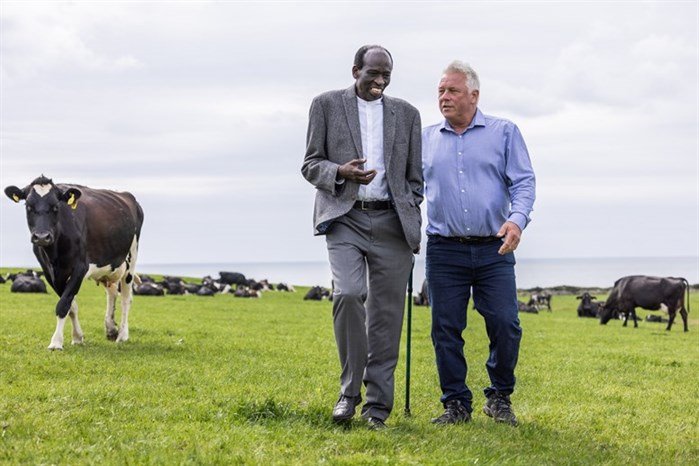Partnering across continents to improve livelihoods
The work of scientists and farmers in Scotland to breed more productive dairy cows has paid off both at home and on the African continent – thanks to support from the Bill & Melinda Gates Foundation.
Research by SRUC Professors Raphael Mrode and Mike Coffey has enabled them to identify economically important traits and implement genomic approaches that lead to healthier cows with higher milk production, and in turn allow farmers to breed smaller cows which require less feed and land to graze on, but produce more milk.
The research is now being highlighted by the Bill & Melinda Gates Foundation 'Partners of Human Potential to show how cows can be used to help communities in both the UK and Africa thrive.
This approach has benefited Scottish dairy farmers like Rory Christie, a former SRUC student, who farms near Port William, in Dumfries and Galloway - one of four farmers in Scotland who have worked with Mike to create the first dairy crossbreeding index as part of the Fast Breeders Project.
The success of the genetics research also sparked the idea it could be used to solve food shortages in Africa. Since the 1950s, dairy cows have been imported into Kenya to produce milk but very little data has been kept about breed types or production potential.
Raphael, who also works for ILRI (International Livestock Research Institute), joined forces with colleagues in Kenya and the Bill & Melinda Gates Foundation to form and implement the African Dairy Genetic Gains (ADGG) programme and gather data about the cows.
This project has enabled farmers across Africa to produce more milk from hybrid cows and move beyond subsistence farming into developing businesses.
“It’s really rewarding to see research from Scotland having an impact both at home and abroad. Smaller cows producing more milk is a good outcome for farmers, consumers and the planet.”
“The application of digital tools and genomic approaches meant that the major hindrances for selective breeding for improved productivity and efficiency could be overcome in smallholder farms in East Africa.”
For further information, please contact:


